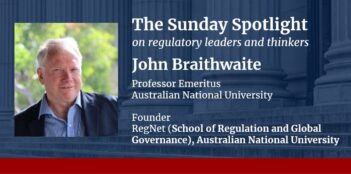
Improving legal representation in criminal cases requires focusing on prosecutors as well as defenders.
In their book Rebooting Justice, Professor Benjamin H. Barton and Judge Stephanos Bibas discuss how American society falls short of the U.S. Constitution’s guarantee of providing meaningful representation to all criminal defendants, regardless of ability to pay. This failure to adequately fund indigent defense has led to numerous documented cases of wrongful imprisonment, imposing enormous costs on the wrongfully accused, victims, and taxpayers.
Given the lack of legislative success in increasing funding for indigent defense, Barton and Bibas take a different approach, proposing to replace the status quo with a more intelligent case triage. Attorney resources would be concentrated on more serious cases, leaving less serious cases, such as misdemeanors with shorter sentences and fewer significant collateral consequences, to be handled in less formal proceedings, as traffic offenses are today in many jurisdictions. An advantage of such triage, Barton and Bibas argue, is that it would free up investigative and other resources that courts and defense attorneys could redirect towards cases where there is a heightened risk of an erroneous conviction.
In regulatory contexts, experts correctly focus resources and attention on behaviors that carry the most risk, and Barton and Bibas rightly note that the criminal justice system’s routine violation of that principle is a core system weakness that must be remedied. Yet even though better resourcing “risky” cases on the defense side is a good idea, this step alone will not sufficiently address the problem of mistaken outcomes in the administration of criminal justice.
One difficulty is that existing data often provide little basis for knowing which cases pose the greatest risk of error, and recent research suggests that errors may be more widespread and distributed differently than commonly believed. As an example, misdemeanor sentencing may provide the most frequent source of wrongful convictions due to the overwhelming incentive defendants have to plead guilty, but data on the issue are virtually non-existent.
How could courts and defense attorneys know which is riskier, an eyewitness case or one with a roadside drug test? What about a case involving an unproven investigative technique like bloodstain pattern analysis?
Moreover, because the lengthy criminal process often does not identify errors for months or years after the precipitating event, if ever at all, feedback loops about error are either slow or non-existent.
Preventing error is not just a matter of insufficient defense resources—the problem emphasized by Rebooting Justice—but also a matter of creating incentives for the right actors to direct existing resources towards harm reduction. System actors need stronger incentives to take currently available resources and direct them towards reducing error.
On the incentive side, prosecutors, rather than defense attorneys, should occupy center stage.
Prosecutors already control substantially more resources than defense counsel, with budgets that are typically much larger than those of court-appointed defense attorneys. Prosecutors also have an informational advantage due to their access to the investigative files and resources of the police, meaning they are often better positioned to detect errors than defense attorneys. Indeed, in many known exonerations, prosecutors possessed key information demonstrating innocence at the time of the inaccurate conviction, but they failed to make use of this information in a manner that averted the error. The “least cost avoider principle,” commonly applied in regulatory settings, suggests that prosecutors should bear primary responsibility for distributing their internal resources so as to minimize errors.
Holding prosecutors more accountable for errors they create could serve as a deterrent that encourages them to direct resources to reducing error. Unfortunately, due to a legal doctrine called absolute immunity, it is virtually impossible to recover damages from prosecutors following a wrongful conviction, even in cases where the prosecutor acted willfully to produce an error. Thus, prosecutors who fail to take preventative measures to avoid wrongful convictions face no real legal or financial consequences for their lack of care, even if the lack of care is intentional.
If manufacturers were immunized against being sued for producing defective products, would products become less safe? Of course they would. It is not hard to see how a similar principle applies to prosecutors: Without strong reasons to invest in quality control, prosecutors underinvest, putting everyone at greater risk of being erroneously convicted.
How could prosecutors be given greater incentives to direct available resources where they are most needed? Courts and legislators should relax the doctrine of absolute immunity, allowing victims of wrongful conviction to recover damages from prosecutors where appropriate.
In the policing context, where officers still enjoy a significant degree of immunity, large civil judgments have nonetheless encouraged reforms that have improved police training, fostered the creation of early warning systems, and promoted internal policies designed to reduce risk. Because police are not immune from lawsuits, a robust market for police liability insurance has also developed, and today liability insurers provide an additional layer of oversight and expertise that helps to reduce the likelihood of future errors.
Similar benefits could be realized in the prosecutorial context, provided legislatures or courts adopt a more sensible approach to immunity. And ultimately, the rewards from a more accurate system would accrue not only to the accused, but to prosecutors as well, who would enjoy greater legitimacy and avoid the emotional and financial costs of convicting the wrong person.
When it comes to preventing mistaken convictions, getting defense attorneys enough resources to handle hard cases is only part of the solution. Prosecutors also need to be encouraged to focus resources and attention on preventing error. Removing the obstacle of absolute immunity would be a step in the right direction.
This essay is part of an eight-part series, entitled Revamping the American Justice System.





